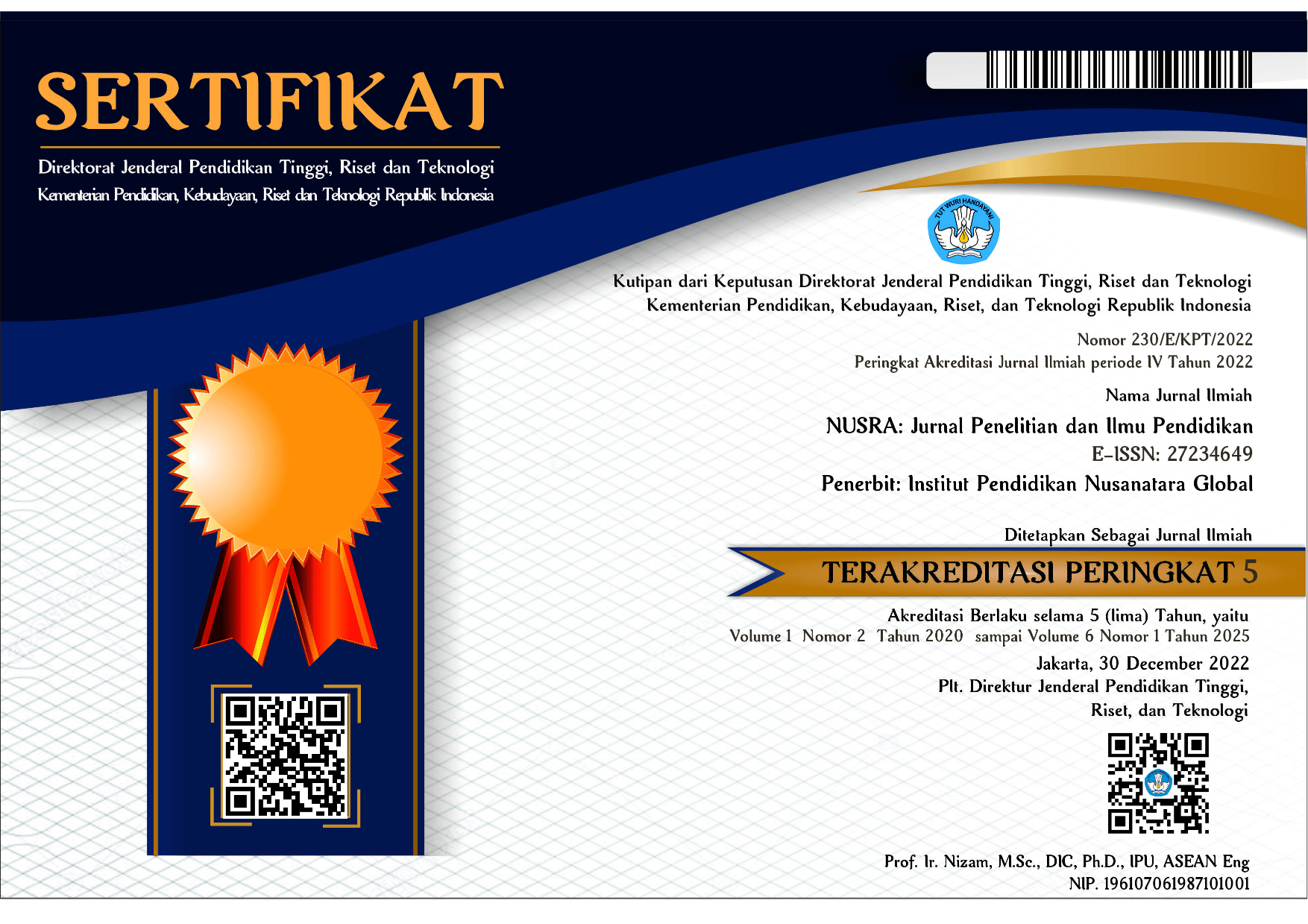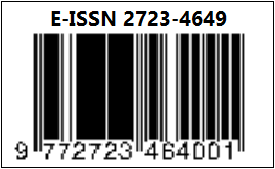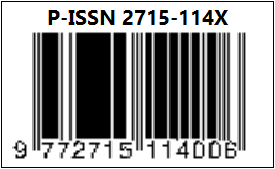Meningkatkan Pemahaman Siswa dalam Cerita Fabel melalui Metode Pembelajaran Role Playing pada Siswa Kelas 3 Sekolah Dasar
DOI:
https://doi.org/10.55681/nusra.v6i4.3996Keywords:
Fable stories, reading comprehension, role playing, active learning, classroom action researchAbstract
This study aims to improve the understanding of fable stories among third-grade students at SDN Rawasalak through the implementation of the Role Playing learning method. The background of this research is based on the low ability of students to comprehend elements of fable stories—such as characters, plot, and moral messages—as indicated by the results of the pretest and initial observations. The study adopts a Classroom Action Research (CAR) approach using the Kemmis and McTaggart model, consisting of two cycles. Data were collected through reading comprehension tests, observation sheets, and teacher reflections. The results show an increase in the students’ average scores from 67.8 in the pre-cycle to 78.1 in the second cycle, as well as an improvement in learning mastery from 37.5% to 87.5%. Moreover, student engagement in the learning process also increased significantly. These findings indicate that the Role Playing method is effective in enhancing students' comprehension of fable stories while fostering an active, enjoyable, and meaningful learning environment. This method is recommended as an alternative instructional strategy for teaching Indonesian language in elementary schools.
Downloads
References
Arikunto, S. (2010). Metode peneltian. Rineka Cipta.
Ausubel, D. P. (1968). Facilitating meaningful verbal learning in the classroom. The National Council of Teachers of Mathematics, 15(2), 126–132. https://doi.org/https://doi.org/10.5951/AT.15.2.0126
David R. Krathwohl. (2008). A Revision of Bloom ’ s Taxonomy : An Overview. ReVision, 41(4), 212–218. https://doi.org/10.1207/s15430421tip4104
Juita, E. (2020). Meningkatan Kemampuan Siswa dalam Memahami Teks Narrative dengan Menggunakan Metode Role Playing. Journal of Education Informatic Technology and Science (JeITS), 2(2), 36–45.
Kartika, T., Fitriani, N., Rizal Fauzi, M., Raya Sawit-Bojong, J. K., & Siliwangi, I. (2021). Pembelajaran Membaca Dongeng Siswa Kelas Iv Sekolah Dasar Dengan Menggunakan Model Role Playing Melaui Media Gambar. Journal of Elementary Education, 04(03), 3.
Kolb, D. A. (2014). Experiential learning: Experience as the source of learning and development. FT press.
Made Ardani, A. A. (2021). Penerapan Metode Bermain Peran untuk Meningkatkan Pemahaman Siswa Terhadap Konsep Pecahan Sederhana pada Mata Pelajaran Matematika di SD Inpres I Nambaru. Jurnal Paedagogy, 8(2), 210. https://doi.org/10.33394/jp.v8i2.3483
Melalolin, L. M., Hartini, N. M. S. A., & Mahayanti, N. W. S. (2020). “Pemanfaatan Lagu sebagai Media Pembelajaran untuk Meningkatkan Pemahaman Tentang Simple Past Tense.” Journal for Lesson and Learning Studies, 3(1), 108–119. https://doi.org/https://doi.org/10.23887/jlls.v3i1.17987
Nasution, M. H. (2025). Membaca dan Menulis Permulaan pada Siswa Sekolah Dasar Kelas Rendah. Jurnal Pendidikan Dan Riset, 3(1), 50–56. https://jurnaltarbiyah.uinsu.ac.id/index.php/ami/article/view/4327
OECD. (2023). Programme for International Student Assessment. Organization of Economic Co-Operation and Development. https://www.oecd.org/pisa/
Paerunan, I. (2011). Teori Piaget, Vygotsky, Dan Bruner. http://irwantop.blogspot.com/2011/03/teori-piaget-vygotsky-dan-bruner.html
Piaget, J. (1972). Cognitive Development in Children. British Journal of Educational Studies, 20(2), 238. https://doi.org/10.2307/3120240
Prasastiningtyas, W., Sudrajat, T., Yulianti, A., & ... (2021). School Literacy Movement Policy at Junior High School Muhammadiyah 10. Jurnal Senriabdi, 1(1), 213–218. https://www.jurnal.usahidsolo.ac.id/index.php/SENRIABDI/article/view/853%0Ahttps://www.jurnal.usahidsolo.ac.id/index.php/SENRIABDI/article/download/853/643
Syahputri, S., Nasution, I. S., & Syamsuyurnita, S. (2023). Pengaruh Metode Role Playing Terhadap Kemampuan Siswa Dalam Memahami Cerita Pada Mata Pelajaran Bahasa Indonesia Kelas IV SD Thailand. Innovative: Journal Of Social Science Research, 3(5 SE-Articles), 9088–9096. https://j-innovative.org/index.php/Innovative/article/view/5832
Tantri, A. A. S. (2016). Hubungan antara Kebiasaan Membaca dan Penguasaan Kosakata dengan Kemampuan Membaca Pemahaman. Acarya Pustaka, 2(1), 1–29.
Vygotsky, L. S. . (1978). Mind in Society: The Development of Higher Psychological Processes. Harvard University Press.
Wijaya, H., Amir, A., Riyanti, D., Claudia Setiana, S., & Sari Somakila, R. (2023). Siklus Kemmis dan McTaggart Contoh dan Pembahasan. IAIN Pontianak Press.
Downloads
Published
How to Cite
Issue
Section
License
Copyright (c) 2025 Auril Ramadani Kusnadi, Cici Dena Putri, Rinaldi Yusuf

This work is licensed under a Creative Commons Attribution-ShareAlike 4.0 International License.














